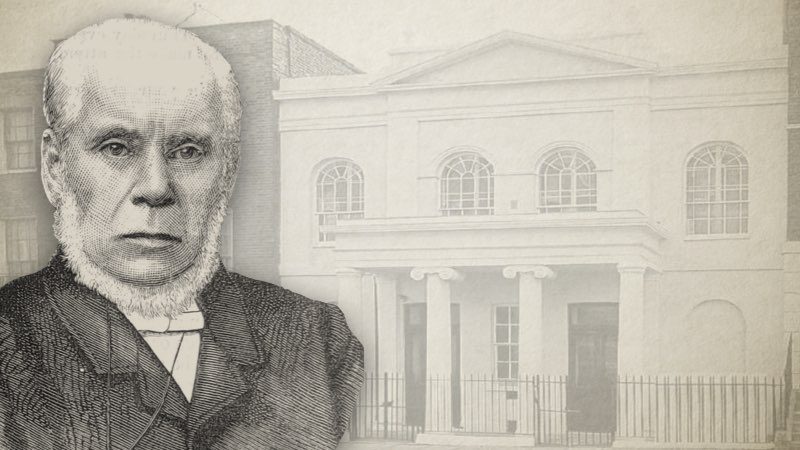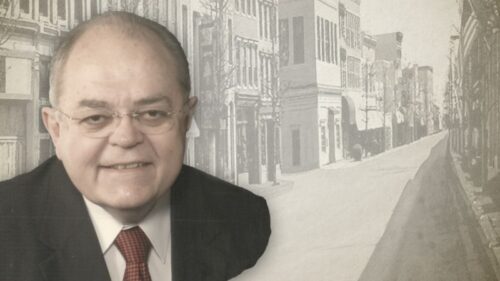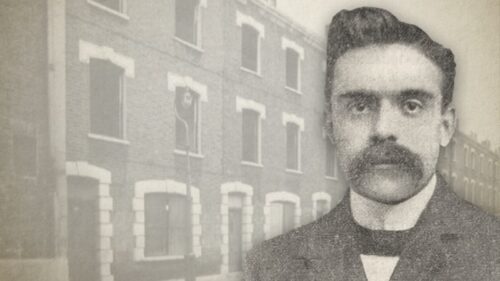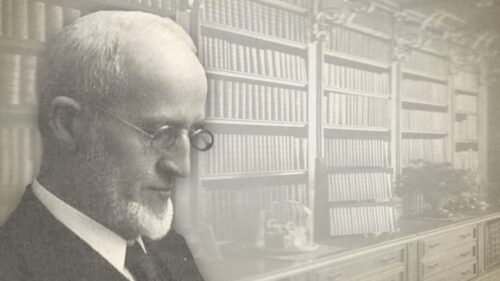-
Duty Faith Denounced
-
Introduction
John Hazelton[1] (1822-1888) was a high-calvinist and strict-communion Baptist pastor[2], whose 35 year ministry with the church meeting at Chadwell Street, London, resulted in a congregation that became one of the leading Strict Baptist (SB) churches during the first fifty years of the 20th century. Like most SB’s, Hazelton stood aloof from the ministry of Charles Spurgeon. In many respects, Spurgeon may be regarded as the father of the Reformed Baptist movement—he espoused many of the features that identify this new breed of brethren. Although many Reformed Baptists trace their lineage to the SB’s, this is an illegitimate link. As the sermons of Hazelton will illustrate, the SB’s were unsympathetic to the heretical teachings of Andrew Fuller. Indeed, the SB’s stood with the doctrines espoused…
-
Churches Should Appoint Elders?
Churches are among the only communities in the world which view 'elders' as an appointed or elected office. The universal and historically recognized meaning of the term refers to unofficial leaders of a community, distinguished by their age, wisdom, wealth and influence. They are not appointed or elected to an office of eldership. Rather, they assume an informal role of leadership when the younger members of the community acknowledge them as elders. Indeed, this is precisely how the term is used in the scriptures. The appointment or election of persons to an eldership is based squarely on ecclesiastical edicts and traditions, which are read into the scriptures. Over the last sixty years, many Baptist churches have adopted these traditions. Regardless of the Reformed Baptists claiming…
-
Persuasional Regeneration?
In an article entitled, “The Need For Persuasion In The Preaching Of The Gospel”, Peter Masters wrote: “The hyper-Calvinist regards the regenerating work of the Spirit as a total and complete work of conversion carried on in the heart by the Spirit in a direct manner...Believing that the whole of regeneration and conversion is accomplished by a direct work of the Spirit in the heart, and that repentance and faith are the fruit and evidence of a soul already saved, the preacher has no exhortation left to make!” This is a classic Reformed (Fullerite) Baptist position. I respond:[1] First, the “hyper-Calvinist” does believe the regenerating work of the Spirt is total and complete. Second, the “hyper-Calvinist” does believe that repentance and faith are the fruit…
-
Introduction
John Piper has served as the pastor of Bethlehem Baptist Church, Minneapolis, Minnesota for more than 30 years. In 1994, an organization called “Desiring God” grew out of John’s tape ministry. It is now “an international web ministry with 12,000+ free resources and 3.5+billion monthly users.” Desiring God hosted a conference for pastors in 2007. John Piper spoke on the life and ministry of Andrew Fuller, as it relates to his “broadsides Against Sandemanianism, Hyper-Calvinism, and Global Unbelief”. The title of his lecture was, “Holy Faith, Worthy Gospel, World Vision”. The audio lecture and full transcript may be accessed here: There are many areas one may benefit from Piper’s teachings, but this is not one of them. Having failed to understand the framework of…
-
1. High-Calvinists Did Not Like George Whitefield, Because He Preached The Gospel?
Speaking of John Wesley and George Whitefield, John Piper points out: “The Particular Baptists did not like either of these evangelical leaders. Wesley was not a Calvinist, and Whitefield’s Calvinism was suspect, to say the least, because of the kind of evangelistic preaching he did. The Particular Baptists spoke derisively of Whitefield’s ‘Arminian dialect’.” One of the leading figures among the Particular Baptists was Pastor-Theologian John Gill. The teachings of Gill are representative of the High-Calvinism to which Piper refers. In George Ella’s book, “John Gill, And The Cause Of God And Truth”, he makes the following observation on page 184: “It is very difficult to conceive that anyone familiar with the ministry of John Gill could accuse him of being without vigour in preaching…









